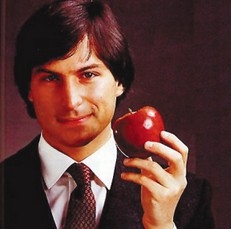What Rough Beast, Its Hour Come Round at Last . . .
何等野獸 終于等到它的時(shí)辰
Steve Jobs, 1996 Things Fall Apart
萬物解體
When Jobs unveiled the NeXT computer in 1988, there was a burst of excitement. That fizzled when the computer finally went on sale the following year. Jobs’s ability to dazzle, intimidate, and spin the press began to fail him, and there was a series of stories on the company’s woes. “NeXT is incompatible with other computers at a time when the industry is moving toward interchangeable systems,” Bart Ziegler of Associated Press reported. “Because relatively little software exists to run on NeXT, it has a hard time attracting customers.”
當(dāng)喬布斯1988年首度推出NeXT計(jì)算機(jī)時(shí),引起了熱烈反響。可是到第二年計(jì)算機(jī)最終上市時(shí),市場熱情卻退去了。喬布斯那種讓媒體眼花繚亂、心生敬畏、趨之若鶩的才能開始失效,負(fù)面新聞也層出不窮。“NeXT跟其他計(jì)算機(jī)不兼容,而當(dāng)時(shí),這個(gè)行業(yè)正向操作系統(tǒng)可互換的方向發(fā)展,”美聯(lián)社記者巴特·齊格勒(BartZiegler)報(bào)道說,“因?yàn)橄鄬碚f,可以在NeXT上使用的現(xiàn)有軟件很少,所以它很難吸引消費(fèi)者。”
NeXT tried to reposition itself as the leader in a new category, personal workstations, for people who wanted the power of a workstation and the friendliness of a personal computer. But those customers were by now buying them from fast-growing Sun Microsystems. Revenues for NeXT in 1990 were $28 million; Sun made $2.5 billion that year. IBM abandoned its deal to license the NeXT software, so Jobs was forced to do something against his nature: Despite his ingrained belief that hardware and software should be integrally linked, he agreed in January 1992 to license the NeXTSTEP operating system to run on other computers.
NeXT試圖將自己重新定位為一個(gè)新產(chǎn)品類型——個(gè)人工作站的領(lǐng)跑者,目

標(biāo)用戶是那些希望兼顧工作站的強(qiáng)大功能與個(gè)人計(jì)算機(jī)的友好性的人。但是這類消費(fèi)者當(dāng)時(shí)已經(jīng)從快速發(fā)展的Sun公司買到了這樣的產(chǎn)品。NeXT在1990年的收入是2800萬美元,而同年Sun公司的收入是25億美元。IBM放棄了向NeXT授權(quán)軟件的協(xié)議,所以喬布斯被迫做了一件違背他本性的事情:雖然他根深蒂固地認(rèn)為硬件和軟件應(yīng)該是一個(gè)不可分割的整體,但是在1992年1月,他同意授權(quán)NeXTSTEP操作系統(tǒng)在其他品牌的計(jì)算機(jī)上運(yùn)行。











